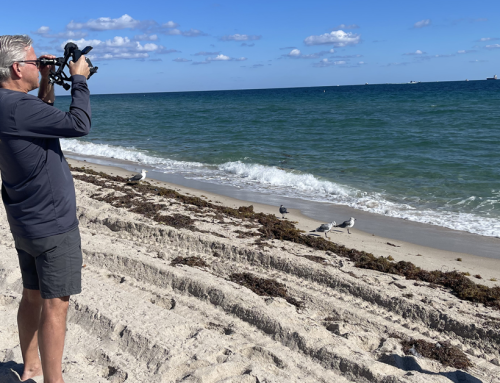“Man cannot discover new oceans unless he has the courage to lose sight of the shore.”
– André Gide
“The real voyage of discovery consists not in seeking new landscapes, but in having new eyes.”
– Marcel Proust
I thought a lot about these two quotes when I left Peak Advisor Alliance (now Carson Coaching) in 2012. Eventually, Gide won out and I decided I needed to blaze a new path and lose sight of the shore where I’d grown a little too comfortable.
I settled on the idea of starting my Between Now and Success podcast as part of my next chapter. I figured podcasting would be a great way to stay in touch with people in our industry, keep networking, and learn from the best of the best.
Now, 10 years later, across five separate podcasts, I’ve recorded more than 850 episodes, the vast majority of which are interview shows. Thanks to podcasting, I went from having a handful of trusted mentors to learning from hundreds of world-class teachers.
While I could easily list dozens of unique and actionable ideas I’ve learned from a decade of podcasting, these 10 insights stand out:
.
1. Cultivate an ecosystem of learning.
At different points in our lives and careers, we’re the student, we’re the practitioner, and we’re the teacher. Even though I spend a lot of my time in teaching mode these days, podcasting helps me to keep learning and put what I learn into action.
2. Play in an uncrowded field.
When I started this podcast back in 2014, there were very few podcasts, let alone podcasts for financial advisors. That novelty helped me land some really incredible guests and grow my audience. Find your niche!
3. Diversify your input sources.
If you’re drawing from the same well as everybody else is in the industry, you’re likely to get the same results as everybody else and not be able to differentiate yourself. You also risk developing tunnel vision that could stifle your growth and understanding of the world.
4. Improve your relationship with feedback.
Lieutenant James Licata told me that what separates the very best test pilots from all the rest is how they process feedback. On my Barron’s Advisor podcast, leadership and performance coach Tim Kight said, “You can’t learn what you already think you know.” Be coachable and don’t get defensive when a respected person gives you some honest feedback.
5. Scare yourself.
I’ve been climbing mountains for 20 years, and recently I added sailing to my adventures. Standing on a peak or navigating a stormy sea are two ways that I scare myself and they’ve led to a deeper self-awareness of my progress, and yes, my shortcomings.
6. Embrace polarities.
When I talked to Ramesh Srinivasan, a senior partner at McKinsey & Company, about his book The Journey of Leadership, we discussed how the best leaders are able to balance contradictory qualities such as: Confidence and Humility; Control and Empowerment; Process and Principles; Data-Driven and Data-Informed.
7. Leverage the path of least resistance.
The Colorado River carved the Grand Canyon by following the path of least resistance. Robert Fritz and I discussed the three fundamental principles leaders can harness to work with the “current” than against it:
- Energy moves along the path of least resistance.
- The underlying structure of anything will determine its path of least resistance.
- We can determine the path of least resistance by creating new structures.
8. Figure out what “enough” means to you.
Lynne Twist and I discussed how to stop chasing “-ers” (richer, thinner, faster) and embrace a life of sufficiency. That’s a lesson Mitch Anthony and I try to pass along to advisors and their clients with our ROL Advisor platform.
9. Decode your emotions to drive top-level performance.
Emotions contain information. And if you try to override that information by controlling it or ignoring it, you’re going to miss out on interpreting your lifetime’s worth of accumulated wisdom. Denise Shull encouraged me to “feel what I’m feeling.” And Victoria Song warned, “If you don’t feel your emotions, then the energy patterns get stuck and metastasize, creating dis-ease in the body, which becomes disease.”
10. Foster a passion outside of work.
Passions, hobbies, and an adventurous spirit not only enrich our personal lives, but they also significantly enhance career performance.
Thank you!
Thanks so much for being a listener and a reader of my blog. I hope you’ll consider sharing my content with friends, family, and colleagues who might benefit as well. Let’s keep going for another 10 years!





